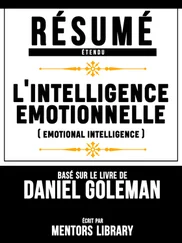Viktor Suvorov - Inside soviet military intelligence
Здесь есть возможность читать онлайн «Viktor Suvorov - Inside soviet military intelligence» весь текст электронной книги совершенно бесплатно (целиком полную версию без сокращений). В некоторых случаях можно слушать аудио, скачать через торрент в формате fb2 и присутствует краткое содержание. Год выпуска: 1984, ISBN: 1984, Жанр: Публицистика, Прочая документальная литература, на английском языке. Описание произведения, (предисловие) а так же отзывы посетителей доступны на портале библиотеки ЛибКат.
- Название:Inside soviet military intelligence
- Автор:
- Жанр:
- Год:1984
- ISBN:0-02-615510-9
- Рейтинг книги:3 / 5. Голосов: 1
-
Избранное:Добавить в избранное
- Отзывы:
-
Ваша оценка:
- 60
- 1
- 2
- 3
- 4
- 5
Inside soviet military intelligence: краткое содержание, описание и аннотация
Предлагаем к чтению аннотацию, описание, краткое содержание или предисловие (зависит от того, что написал сам автор книги «Inside soviet military intelligence»). Если вы не нашли необходимую информацию о книге — напишите в комментариях, мы постараемся отыскать её.
Inside soviet military intelligence — читать онлайн бесплатно полную книгу (весь текст) целиком
Ниже представлен текст книги, разбитый по страницам. Система сохранения места последней прочитанной страницы, позволяет с удобством читать онлайн бесплатно книгу «Inside soviet military intelligence», без необходимости каждый раз заново искать на чём Вы остановились. Поставьте закладку, и сможете в любой момент перейти на страницу, на которой закончили чтение.
Интервал:
Закладка:
Their selection is always a complicated and responsible business. The primary criterion is that as far as possible they must not be prone to accidental discovery. They are threatened by many possible happenings: they may be found by children, by the police, even by archaeologists. There may be floods, or the heat of summer may affect them. Someone may start building on the site. All this must be taken into account. Equally important is that the dead-letter box's location must be easy to describe to another person, even by somebody who only knows about it at secondhand. It must also be located in a place where it is possible for the case officer to go at any time with a plausible cover story for his presence there. Some random examples from GRU practice are worth describing.
As a general principle of security, each dead-letter box (DLB) may only be used once. Documents on all DLBs are stored in the GRU command point and after the completion of a DLB operation the document is stamped 'used' and transferred to the archives. An officer at a command point, working in a GRU top secret archive, once discovered the description of a DLB on which there was no 'used' stamp. The document was very old, pre-war. The DLB has been selected in 1932 and three years later some material had been put in it - money and valuables for the use of the illegal residency in case of emergency, apparently 'in various currencies to a total sum of 50,000 American dollars'. The officer carefully inspected the document again, but there was nothing on it to show that the DLB had been emptied. The officer informed his chief of what he had found and he in his turn informed the GRU chief, who decided on an investigation. The affair was not complicated and a week later the investigation disclosed that the dead-letter box had belonged to the Hamburg illegal residency which in 1937 had been recalled to Moscow lock, stock and barrel for 'instructions', and shot. All the materials of the residency had been handed in to the archives, together with the document about the unused DLB. The new officers who took the place of those who had been shot were completely inexperienced and started work with new sets of documents. There was no time, in any case, to look into the old documents. Then the new GRU staff was also liquidated. So there were many documents which were completely forgotten and simply collected dust in the archives.
The GRU chief took two decisions, firstly, to nominate a group of specially trusted officers for permanent archive work- perhaps something else of interest might be discovered - and secondly, to give an order to one of the GRU residencies in West Germany to find this old unused DLB. Suppose it was still there. If it was, then the value of its contents would have increased many times.
In fact the DLB had survived, in spite of the war, the fierce bombing of Hamburg, the rebuilding of the city after the war, and the enormous expansion in the development of the city. The DLB consisted of a hermetically sealed container, about the size of a small suitcase, which had been buried at the bottom of a lake in a quiet park. For greater security it had been covered with an old tombstone which had been sprinkled all over with sand and silt. The container was removed to Moscow and opened there. Much to the disappointment of all those present, all that was inside was a few dozen old-fashioned silver watches of very little value, a hundred or so American dollars and a few thousand crisp German Marks of the time of the Third Reich.
The second dead-letter box was in the very centre of the American capital. At the beginning of his lunch break, the agent would go into a park and hide top secret documents in the hollow of a tree. Some minutes later a Soviet 'diplomat' would appear, remove the documents and with the help of two other 'diplomats' copy them in his car which was parked at the Capitol. The operation was an especially daring one, and succeeded several times after the GRU chief had sanctioned repeated use of the DLB. The copying of the documents in the car did not take more than twenty minutes, and the agent, on his return from his lunch break, was able to walk in the park for a few minutes longer and retrieve his documents. One day the case officer was making his way towards the dead-letter box. Suddenly his attention was attracted by a sheet of white paper blowing about with the first yellow and red leaves. The officer picked it up and, horrified, saw the stamp 'top secret'. He looked around. All over the park were dozens of similar sheets of paper. The officer realised that squirrels getting ready for winter had taken up residence in the hollowed-out tree; the pieces of paper had got in their way and they had thrown them out. He immediately set about picking up the pieces, many of which were torn by the sharp teeth and claws of these lovable little animals. At that dramatic moment a policeman appeared in the park. He evidently took the Soviet diplomat for one of the White House workers who had had his papers blown out of his hands by the wind. Without a word, the policeman also started to collect the papers. Having gathered a considerable number, the policeman held them out to the embarrassed case officer. The latter took them and smiled in the most foolish way, even forgetting to thank his saviour and helper, who saluted and withdrew. Nevertheless the situation remained highly critical. There was absolutely no time, as the agent had already appeared on the opposite side of the park. The case officer hurried to meet him, although this was strictly forbidden. Quickly outlining the situation, the officer suggested two possible ways out: either the agent should tell his department that he had in error torn up the papers and thrown them into the waste-paper basket but then had remembered in time; or he should wait for four days. The agent chose the second option. Within hours, an officer with diplomatic rank had made two changes of aircraft in Europe and arrived in Warsaw where a fast fighter interceptor was waiting for him. Again only hours later, the GRU had carried out a complete forgery of the documents, and a day later they were returned to the agent. Of course, all this time he had been threatened with exposure, but the GRU's swift action had saved him.
A third dead-letter box was in a small drainage pipe on the embankment of a river in northern Europe. The officer had to lower into the pipe a small metal box with a magnet attached. The magnet was very strong and normally there would have been no risk that the box would come unstuck. Pretending to tie up his shoe-lace, the officer carefully lowered the little box into the drainage pipe with the magnet and took out his hand. But the first frosts had started and the officer had not taken into account the fact that the interior of the pipe was covered with a thin layer of ice. The box slid down the pipe, giving out a harmonious ringing noise, and after a few seconds flew out into the river, which was unfortunately also covered with a thin sheet of ice. Had the river not been iced over, the box would have sunk and that would have been that. But instead it skidded on the ice right to the middle of the river. The ice was too thin to walk on, and nor was it, possible to throw things at the box across the ice to send it to the other side. In the box was a film with instructions for an agent. There was only one way out. The officer ran into a shop and bought a fishing rod; then, for an hour and a half, to the astonishment of passers-by, he cast his hook onto the ice until it was taken by the magnet. By carefully winding in his line, he succeeded in retrieving the valuable box. This happened in the heart of one of the Western capitals in broad daylight.
Signals, too, are a means of exchanging information which is highly favoured by the GRU. Office pins are used as signals stuck in a predetermined place, dots, bands, crosses, signals are made with chalk, pencil, paints, lipstick. A car parked in a pre-arranged place at a pre-arranged time may serve as a signal or a doll placed in a window of a house. These are used as warnings of danger, requests for meetings, confirmation of the reception of radio instructions and for hundreds of other intentions.
Читать дальшеИнтервал:
Закладка:
Похожие книги на «Inside soviet military intelligence»
Представляем Вашему вниманию похожие книги на «Inside soviet military intelligence» списком для выбора. Мы отобрали схожую по названию и смыслу литературу в надежде предоставить читателям больше вариантов отыскать новые, интересные, ещё непрочитанные произведения.
Обсуждение, отзывы о книге «Inside soviet military intelligence» и просто собственные мнения читателей. Оставьте ваши комментарии, напишите, что Вы думаете о произведении, его смысле или главных героях. Укажите что конкретно понравилось, а что нет, и почему Вы так считаете.












